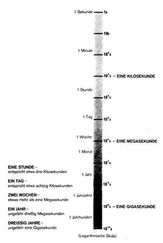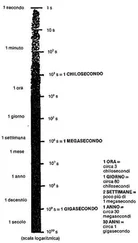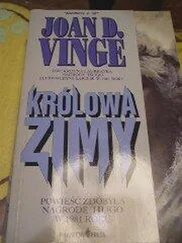Joan Vinge - The Summer Queen
Здесь есть возможность читать онлайн «Joan Vinge - The Summer Queen» весь текст электронной книги совершенно бесплатно (целиком полную версию без сокращений). В некоторых случаях можно слушать аудио, скачать через торрент в формате fb2 и присутствует краткое содержание. Год выпуска: 1991, ISBN: 1991, Издательство: Macmillan, Жанр: Старинная литература, на английском языке. Описание произведения, (предисловие) а так же отзывы посетителей доступны на портале библиотеки ЛибКат.
- Название:The Summer Queen
- Автор:
- Издательство:Macmillan
- Жанр:
- Год:1991
- ISBN:9780765304469
- Рейтинг книги:4 / 5. Голосов: 1
-
Избранное:Добавить в избранное
- Отзывы:
-
Ваша оценка:
- 80
- 1
- 2
- 3
- 4
- 5
The Summer Queen: краткое содержание, описание и аннотация
Предлагаем к чтению аннотацию, описание, краткое содержание или предисловие (зависит от того, что написал сам автор книги «The Summer Queen»). Если вы не нашли необходимую информацию о книге — напишите в комментариях, мы постараемся отыскать её.
The Summer Queen — читать онлайн бесплатно полную книгу (весь текст) целиком
Ниже представлен текст книги, разбитый по страницам. Система сохранения места последней прочитанной страницы, позволяет с удобством читать онлайн бесплатно книгу «The Summer Queen», без необходимости каждый раз заново искать на чём Вы остановились. Поставьте закладку, и сможете в любой момент перейти на страницу, на которой закончили чтение.
Интервал:
Закладка:
She sighed, controlling her annoyance as his frustration struck her in the face. She joined him at the catamaran’s rail, looking down at the water’s moving surface. At the moment there were no mers visible anywhere in the sea around them. “When you suggested that we go away for a few days, just the two of us, and sail down the coast, I was hoping this would be … restful,” she said. Romantic. She looked away again, unable to say what she felt, as usual, when it involved her own feelings.
“Don’t you find it restful?” he asked, surprised. He had insisted that they were both working too hard, after her third miscarriage. Enough time had passed that they could safely try again for a child, and she had hoped that he meant this trip to be for them …just them.
“I find it … lonely.” She forced the word out; forced herself to look at him.
“You miss Carbuncle that much?” he asked.
“I miss you.”
His brown eyes with their epicanthic folds glanced away. He put his arm around her, drawing her close. He held her, his nearness warming her like the sun; but his other hand busied itself with the recording equipment, allowing him to avoid answering her. He had always been a man of few words; his emotions ran so strong and deep that they were almost unreachable. She had known that when she married him. It was what had drawn her to him, his strength and his depth. That and his face. golden-skinned and ruggedly handsome when he smiled at her … his straight, night-black hair; the absurd stubbornness of his mustache and the way it twitched when something took him by surprise—as she had when she’d told him she was staying on Tiamat, and asked him the question he could not ask himself… .
She had always understood his reticence, his guardedness, so well because it was so much like her own. But understanding had not kept the silence from accreting like an invisible wall between them. Sometimes she felt as if they were trapped in a stasis field, that they had been rendered incapable of communication, of motion or emotion. It frightened her in a way that nothing in all her years on the Hegemonic Police force had ever frightened her. This was worse, because she had no idea what to do about it. …
“I won’t be much longer,” he murmured, at last. “I promise you. I’m almost out of recording medium.” He smiled, one of his wry, rare, selfaware smiles, and she felt her tension ease.
A mer’s face broke the surface beside them, startling her. Another one appeared, and another. Their heads moved with nodding curiosity as their long, sinuous necks rose farther out of the water. Their wet brindle fur glistened; their movements were as graceful as the motion of birds in flight. The mers gazed up at her with eyes like midnight. Looking into their eyes was almost a meditation; a moment’s contact somehow gave her a sense of peace that would have taken her hours of empty-minded solitude to attain.
She wondered again about whoever had created them, in the long-ago days of the Old Empire. The mers did not look human, but the human eye saw them as benign, even beautiful. And they seemed to regard humans with instinctive trust; they showed no fear at all, even though humans had slaughtered their kind for centuries. They forgot … or they forgave. She could not say which, because she had no idea what really went on inside their minds. Humans and mers shared a genetic structure that was superficially similar; the mers’ wide, blunt-nosed faces always reminded her of children’s faces—curious, expectant. And yet the ones gazing up at her now were gods-only-knew how old. They were, in profound ways, as alien and unfathomable as they were superficially like anything she recognized.
She watched and listened while Miroe played prerecorded passages of their speech and recorded their responses. Singsong trills and chittering squawks, deep thrumming harmonies filled the air. The mers were a sentient race; their brains were similar in size and complexity to a human brain. The fact of their sentience was recorded in the sibyl net’s memory banks, and could be accessed by any sibyl in Transfer. But no data existed about why their god-playing creators had given them intelligence, any more than it existed about why they had been given the gift of virtual immortality. The mers were one more of the mysteries that clung to this haunted world like fog, until clear vision into its past seemed as impossible as looking into the future.
But their intelligence manifested itself in alien ways. The mers had no natural enemies besides humans, and no apparent material culture, or desire to create one.
They lived in an eternal now, in the constant sea; time itself was a sea for them, even as it was a river for the creatures that surrounded them, whose brief lives flickered in and out of their timeless existence; here today, gone tomorrow…
That difference was incomprehensible to many human beings, either because they could not bridge the conceptual gap to an alien way of thought, or because they chose to ignore the distinction. It was far easier to see that the mers made the seas of this world a fountain of youth, one the richest and most powerful people in the Hegemony would pay any price to drink from, even if it meant that they had to drink blood. The silvery extract taken from the blood of slaughtered mers was euphemistically called the “water of life,” and if it was taken daily it maintained a state of physical preservation in human beings. So far no one had been able to reproduce the extract, a benign technovirus engineered like the mers themselves through Old Empire processes that had been lost to time. The technovirus quickly died outside the body of its original host, no matter how carefully it was maintained; as the mers themselves died, if they were separated from their own kind and shipped off world. But a reliable supply of the water of life was needed to satisfy a constant demand. Arienrhod had provided it, as had all the Snow Queens before her, by allowing the mers to be hunted; the Winters had reaped the rewards, growing fat off the flow of trade, and countless mers had died.
But now at last Summer had come again. The offworlders had gone, taking their insatiable greed with them. The mers would have an inviolate space of time in which to replenish their numbers, with painful slowness, righting the unspeakable wrong their creators had done them.
One of the mers ducked back under the water’s surface, abruptly disappearing from the conversation Miroe had been attempting to carry on. The two who remained glanced at each other, looked up at him; then one by one they sank out of sight, whistling trills that might have been farewells or simply meaningless noise.
Miroe leaned over the rail, staring down at the suddenly empty sea. He swore in frustration and incomprehension. “What the hell—? Why did they just leave like that?”
Jerusha shrugged. “Did you say something that made them angry?”
“No,” he snapped, with pungent irritation, “I didn’t. I know that much about their speech, after this long, and it’s all recorded—” He had been fascinated by the mers since long before she met him, before either one of them had been certain that the mers were an intelligent race. When she first encountered him he had been dealing with techrunners, buying embargoed equipment that helped him interfere with the Snow Queen’s hunts. He had believed in the mers’ intelligence even before Moon Dawntreader told him the truth in sibyl Transfer. He had been trying for years to decode what seemed to be their tonal speech, because mers were unable to form human speech.
“Maybe the conversation bored them,” Jerusha said.
Miroe turned toward her; but his frown of annoyance faded. He looked down at the water again. “I almost think you’re right,” he murmured. “Damn it! After all this time, I don’t understand them any better than I did twenty years ago.” He shut off his recorder roughly. “They don’t want to talk, all they want to do is sing. The harmonic structures are there, it’s logical and patterned. But there’s no sense to it. It’s just noise.”
Читать дальшеИнтервал:
Закладка:
Похожие книги на «The Summer Queen»
Представляем Вашему вниманию похожие книги на «The Summer Queen» списком для выбора. Мы отобрали схожую по названию и смыслу литературу в надежде предоставить читателям больше вариантов отыскать новые, интересные, ещё непрочитанные произведения.
Обсуждение, отзывы о книге «The Summer Queen» и просто собственные мнения читателей. Оставьте ваши комментарии, напишите, что Вы думаете о произведении, его смысле или главных героях. Укажите что конкретно понравилось, а что нет, и почему Вы так считаете.












